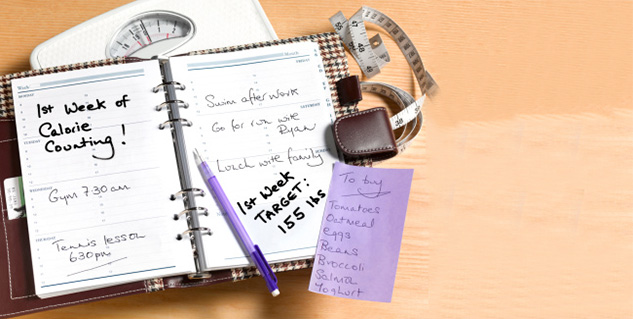Weight Loss Myth? Coffee Can Help You Lose Weight
Coffee is very controversial when it comes to weight loss. Some say that it can be of benefit to dieters, while others say that it can be detrimental to a weight loss plan. In fact, coffee most likely has both positive and negative effects on weight loss, depending on how it's consumed and other factors.
How Coffee Can Help a Diet
Coffee contains caffeine which is a stimulant. It can enable people to feel more alert and help them to be more active, leading to weight loss. It may also act as a mild appetite suppressant. Drinking coffee during the afternoon or after dinner can help to reduce cravings for snacks or sweets, by filling the stomach and suppressing the appetite, without the addition of calories.
Coffee might also stimulate your metabolism by increasing your rate of thermogenesis (how your body burns calories to create heat and energy). However, this is only a slight increase and studies have not shown it to have a very large effect on weight loss. Coffee is often claimed to be a diuretic, but studies have shown that drinking it in moderation does not lead to water loss. Indeed, drinking coffee increases your fluid intake by the same amount as drinking water, which might make it easier for those who love coffee but dislike water to keep their fluids up.
While coffee has been said to increase insulin resistance which can lead to overeating and eventually might turn into diabetes, recent studies have shown that coffee itself is not the cause of the insulin resistance. The sugar often used in coffee is more likely a factor, as well as other unhealthy lifestyle choices. In fact, some have suggested that coffee, which contains antioxidants, may in fact raise insulin sensitivity, although this hasn't been proved.
How Coffee Can Harm a Diet
When you drink too much coffee, the caffeine can increase stress levels which might lead to overeating. It can also promote insomnia, which might also lead to a higher consumption of calories. However, coffee contains other chemicals which stimulate the production of cortisone and adrenaline. These chemicals increase stress levels, and cortisone has been linked with an increase in abdomen fat, which causes more health concerns than fat in other areas.
Coffee itself has very few calories and no fat, but people rarely drink it without something added to modify the taste. Even a shot of flavored syrup can add calories to a coffee, and some of the more creamy and elaborate concoctions can have as many calories as an entire meal. Milk and cream are also very high in saturated fat, which not only contributes calories but is also dangerous for your health. Too much saturated fat can lead to heart disease.
The effects of coffee on weight loss don't seem to be enough to radically cause people to gain or lose weight. The best advice is to consume coffee in moderation if desired, and to be aware of the effects it has on you, in order to take advantage of them.
-
Good vs. Bad: Low Fat Diets
Low fat diets can be confusing. Is all fat poor? Does a food label
-
Why Choose Green Tea Diet And Are There Any Downsides
Due to the popularity of recent findings, green tea diet has almost be
-
Low Fat Recipe Guide
Sexy, figure hugging clothes are all the
-
Advice On How To Lessen The Impact Hemorroids Have On Your Life
A lot of hemorrhoid sufferers won’t even realize they have
-
5 Weight Loss Gimmicks to Never Try
5 Weight Loss Gimmicks to Never Try If youve fallen victim to a
-
Rapid Weight Loss Side Effects
Some people unfortunately fall for the fad that they can lose weight f
- DON'T MISS
- How Healthy Are Dairy Alternatives?
- Crystal Lake, IL Personal Trainer Reveals Tips For A Successful Weight Loss
- Read My Own Phenternin Hoodia Diet Success Story
- Personal Training Helps Diabetics Enhance Life Quality
- ByeBye Bread
- Overweight Kids Lose Weight Eating Peanuts Every Day
- Lose Weight Get Fit And Live Longer
- Simple Tricks To Helping You Lose Weight
- Easy Ways To Lose Weight Fast
- How To Stop Freaking Out All The Time




